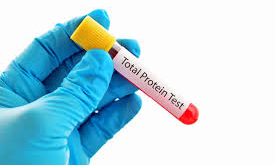Introduction
The serum creatinine test is a crucial diagnostic tool used to evaluate kidney function and overall health. It measures the creatinine levels in the blood, which is a byproduct of muscle metabolism. The kidneys filter creatinine from the blood, and its level in the bloodstream can indicate how well the kidneys are functioning. In this article, we will delve into the serum creatinine test, its significance in diagnosing kidney-related conditions, and the implications of abnormal results. Let’s explore this essential aspect of health and understand its relevance to maintaining overall well-being.
What is creatinine?
Creatinine is a waste product .It comes from the digestion of protein in food and the normal breakdown of muscle tissue. It is removed from the blood through the kidneys. Everyone has some creatinine in their blood, but too much can be a sign of a possible kidney problem.
Serum Creatinine Test
The serum creatinine test is a blood test performed to measure the concentration of creatinine in the blood. Creatinine is a waste product produced during muscle metabolism, and it is eliminated from the body through the kidneys. The test provides valuable information about kidney function, as healthy kidneys efficiently filter creatinine from the bloodstream.
Why is the Serum Creatinine Test Important?
The serum creatinine test is vital for several reasons:
- Assessing Kidney Function: The primary purpose of the test is to assess how well the kidneys are functioning. Elevated creatinine levels may indicate impaired kidney function, suggesting potential kidney disease or damage.
- Monitoring Chronic Kidney Disease (CKD): For individuals with known kidney conditions or those at risk of developing CKD, regular monitoring of creatinine levels is essential to track disease progression and make informed treatment decisions.
- Adjusting Medications: Some medications are excreted through the kidneys, and impaired kidney function may affect their clearance. Monitoring creatinine levels helps healthcare providers adjust medication dosages to avoid potential side effects.
- Preventing Acute Kidney Injury (AKI): In critical care settings, the serum creatinine test is used to detect AKI, a sudden decline in kidney function. Early detection allows prompt intervention, reducing the risk of complications.
- Evaluating Overall Health: The kidneys play a crucial role in maintaining overall health. Abnormal creatinine levels can be an indicator of underlying health issues beyond kidney function.
Understanding the Serum Creatinine Test Results
Interpreting the serum creatinine test results requires an understanding of normal ranges and factors that can influence these values. The normal range for creatinine levels may vary slightly depending on the laboratory’s reference values. Typically, a normal range is between 0.6 to 1.3 milligrams per deciliter (mg/dl) for adult males and females. Higher levels may indicate impaired kidney function or other medical conditions.
Factors influencing creatinine levels include age, muscle mass, and certain medical conditions. For instance, individuals with more muscle mass tend to have higher creatinine levels. Conversely, age-related muscle loss can lead to lower creatinine levels in the elderly.
Causes of Abnormal Creatinine Levels
Abnormal creatinine levels may be a result of various factors, such as:
- Kidney Disease: Chronic kidney disease (CKD) is one of the most common causes of elevated creatinine levels. Conditions like glomerulonephritis, kidney infections, and polycystic kidney disease can also affect creatinine clearance.
- Dehydration: Inadequate fluid intake can lead to a temporary increase in creatinine levels as the kidneys conserve water.
- Urinary Tract Obstruction: Blockages in the urinary tract can impede creatinine excretion, leading to elevated levels in the bloodstream.
- High Protein Diet: Consuming large amounts of protein may temporarily raise creatinine levels due to increased muscle breakdown.
- Certain Medications: Some medications, such as antibiotics and nonsteroidal anti-inflammatory drugs (NSAIDs), can affect kidney function and influence creatinine levels.
- Acute Kidney Injury (AKI): Sudden kidney damage or injury can cause a rapid increase in creatinine levels.
Preparing for the Serum Creatinine Test
To ensure accurate test results, proper preparation is necessary:
- Hydration: Staying adequately hydrated is essential. Drink water as usual before the test unless instructed otherwise by a healthcare provider.
- Fasting: Typically, no fasting is required for a serum creatinine test. However, if other tests are scheduled alongside it, fasting may be necessary.
- Medication Review: Inform your healthcare provider about any medications, supplements, or herbal remedies you are taking, as some may interfere with test results.
The Serum Creatinine Test Procedure
The serum creatinine test is a simple and routine blood draw. Here’s what to expect:
- Appointment: Schedule an appointment for the blood test at a laboratory or a healthcare facility.
- Blood Draw: A trained phlebotomist will draw a small amount of blood from a vein, usually in the arm.
- Specimen Collection: The blood sample is collected in a test tube and sent to the laboratory for analysis.
- Waiting Period: Results are typically available within 24 to 48 hours, depending on the lab’s workload.
Where serum creatinine test is done?
- Hospital
- Diagnostic center
- Clinic
- Health complex
Cost of serum Creatinine test
Cost of serum Creatinine test depends on different factors such as rank of hospital, position of hospital etc. So the cost of serum Creatinine test differ from hospital to hospital. Cost of serum Creatinine test is approximately 300 taka to 400 taka.
FAQs about the Serum Creatinine Test
Q: What are the other tests that assess kidney function besides the serum creatinine test? A: Other tests include the estimated glomerular filtration rate (eGFR) and urine albumin-to-creatinine ratio (UACR). These tests provide additional information about kidney health and potential signs of kidney disease.
Q: Can I have a normal serum creatinine test result and still have kidney disease? A: Yes, in some cases, early-stage kidney disease may not significantly affect creatinine levels. The eGFR and UACR tests are more sensitive in detecting early kidney dysfunction.
Q: How often should I get a serum creatinine test? A: The frequency of testing depends on individual health status and risk factors. People with diabetes, hypertension, or a family history of kidney disease may require more frequent testing.
Q: Are there any dietary changes I should make before the test? A: Unless advised otherwise by your healthcare provider, no dietary changes are necessary before a serum creatinine test.
Q: Can medications affect the serum creatinine test results? A: Yes, certain medications, such as cimetidine, trimethoprim, and others, can influence creatinine levels. Always inform your doctor about all the medications you are taking.
Q: What should I do if my serum creatinine test results are abnormal? A: If your results indicate abnormal creatinine levels, consult a healthcare professional for further evaluation and appropriate management.
Conclusion
The serum creatinine test is a fundamental tool for assessing kidney function and overall health. Understanding its significance and implications can empower individuals to take proactive steps towards maintaining healthy kidneys and well-being. Regular monitoring, lifestyle modifications, and early detection of kidney-related conditions are vital for preserving kidney function and preventing potential complications. If you have concerns about your kidney health or are at risk of kidney disease, consult your healthcare provider to discuss appropriate testing and preventive measures.
 Pathology Training Institute in Bangladesh Best Pathology Training Institute in Bangladesh
Pathology Training Institute in Bangladesh Best Pathology Training Institute in Bangladesh


